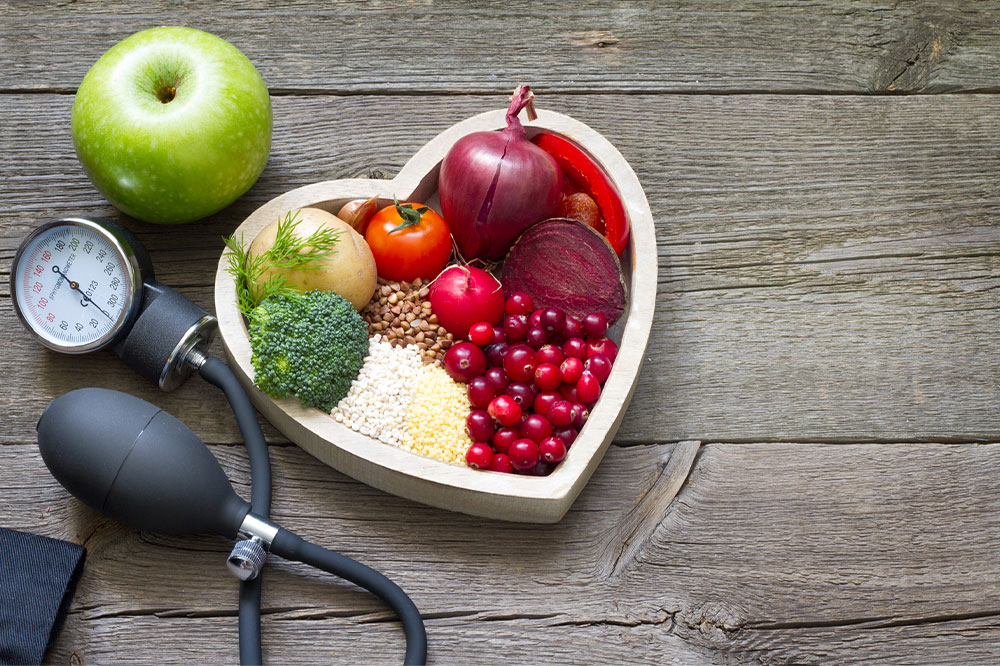
4 ways to lower cholesterol
Cholesterol, a fat-like compound made by the liver, performs several crucial functions. For instance, it helps keep the cell walls flexible and produce specific hormones. However, excessive cholesterol can be dangerous as it can get deposited in the blood vessel walls, resulting in a stroke, heart attack, kidney failure, and clogged arteries. While several treatments lower cholesterol, lifestyle changes also help. Here are the best ways to lower cholesterol naturally.
Get physically active
Both resistance training and aerobic exercises can help improve cholesterol levels. However, the extent of benefits will depend on one’s exercise intensity. Moderate-to-high-intensity exercises can lower LDL (bad cholesterol) while improving HDL (good cholesterol). Experts recommend performing at least 150 minutes of moderate-intensity aerobic workout every week. Alternatively, one can aim for 70 minutes of high-intensity aerobic activity. This level of physical exercise can help improve HDL levels significantly. One study found that, when performed thrice a week for 40 minutes, aerobic exercises increase HDL by more than ten percent.
Some aerobic exercises individuals can indulge in are, biking, walking, jogging, swimming, tennis, and jumping rope. Those wanting to create a moderate-to-high-intensity resistance workout can train with resistance bands and lift weights.
Switch to healthy cooking methods
Sometimes, it is not what one eats but how they eat that makes a difference. Adopting healthy food preparation practices can help individuals lower cholesterol naturally. For instance, a person may focus on baking, broiling, grilling, poaching, or boiling. These are better methods than breading or deep frying, which increase the food’s fat content and raise cholesterol levels.
Incorporate healthy sleep habits
Getting adequate sleep is imperative for good health. While the amount of sleep a person needs changes with age, research suggests that most adults must aim for seven or more hours of sleep every night. Studies have shown a link between poor sleep quality or short sleep duration and high cholesterol levels. So, one of the best ways to lower cholesterol is to get adequate sleep.
Eat the right foods
A person’s food habits have a significant impact on their cholesterol levels. Adding the following to the meal plan can help keep cholesterol levels in check:
Oats: A bowl of oatmeal or cold oat-based cereals for breakfast has one to two grams of soluble fiber, which is necessary to control cholesterol.
Barkley: Like oat bran and oats, barley has soluble fiber that reduces cholesterol levels and lowers the risk of heart disease.
Beans: Beans are rich in soluble fiber, which takes time to digest. This means one stays full for longer post a meal and avoids overeating, a plausible risk factor for high cholesterol.
Several everyday items can spike cholesterol, so keeping them off the plate or reducing their intake is essential:
Fried foods: Foods like cheese sticks and French fries are high in cholesterol, trans fat, and calories. These properties amplify one’s risk for heart disease and are detrimental to health.
Fast foods: Fast foods increase the risk of several chronic conditions, such as diabetes and heart disease. Those who consume these foods frequently have high cholesterol levels, impaired blood sugar regulation, and high inflammation levels.
Desserts: Most sweets are high in cholesterol, added sugars, calories, and unhealthy fats, all of which should be avoided.




